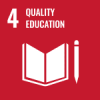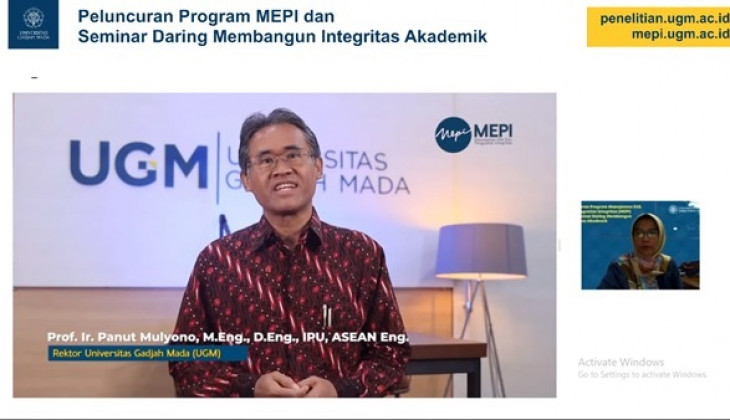UGM officially launched a Manajemen Etik dan Penguatan Integritas (MEPI) program or Ethics Management and Integrity Strengthening. This launch was broadcasted online via the UGM Yogyakarta Youtube channel, followed by an online seminar entitled “Building Academic Integrity.”
MEPI is a program from UGM to maintain, develop, and institutionalize ethical and integrity standards at UGM. UGM academicians can access this program through the website http://mepi.ugm.ac.id.
This program aims to educate comprehensive ethics and integrity through various modules that consist of two major concepts; disciplinary-and-ethics standard and care-and-student body protection.
According to Dr. Agus Wahyudi, as a representative of the UGM MEPI team, the need for ethical education had been necessary since a long time ago to solve any issues regarding plagiarism, sexual assault, the use of illegal drugs, etc. He emphasized the word “promoting” to introduce MEPI. He said it sounds more appropriate than prevention and monitoring, which often refers to advocacy with law enforcement.
“Promoting can mean to foster awareness. Moreover, it can also refer to choosing to behave. The selection of this word could lead us to think more critically in the ethical and integrity scopes. This is important for us,” Agus explained.
He considered this effort as a precise strategy for us as a leading university. However, there is still room for improvement in management, content, etc. “We could lead with promoting ethical and integrity behavior following the standard. To accomplish it, we need perseverance efforts based on science and evidence.
On the other hand, Prof. Panut Mulyono, UGM chancellor, revealed that this program was a manifestation of law No. 11 of 2019 on the national system of science and general policy of UGM 2012-2037.
“UGM as an education institution should maintain and build public trust through management and maintenance of ethical standards and integrity in a scientific, structured, and rational manner,” he explained.
Hence, he initiated to implement it within the UGM campus, and he also expected that all UGM academics comply with implementing ethical and integrity behavior collectively. The previous commissions (FKKMK Research Ethics Commission and RSUP Research Ethics Commission dr. Sardjito) and now additionally three commissions (the Research Ethics Commission for Agriculture and Fisheries, the Research Ethics Commission for Mathematics and Science, and the Research Ethics Commission for Socio-Humanities) have strengthened the MEPI program.
“The presence of MEPI and the research ethics commissions can hopefully support the culture and ecosystem of ethics and integrity on the UGM campus as a way to mitigate academic misconducts,” he concluded.



